This year’s AFI Fest was one of great change: least of all it being the first time that tickets actually cost money! Not a great strategy considering that 2019 offered the tamest lineup in years — and yet, among them were some true gems. Film Editor Sergio Zaciu took to the festival with guest contributors Alexander Larios and Kevin Cookman. Below are our thoughts on what we saw (starting with the films that left us cold, and ending with those that had us begging for more).
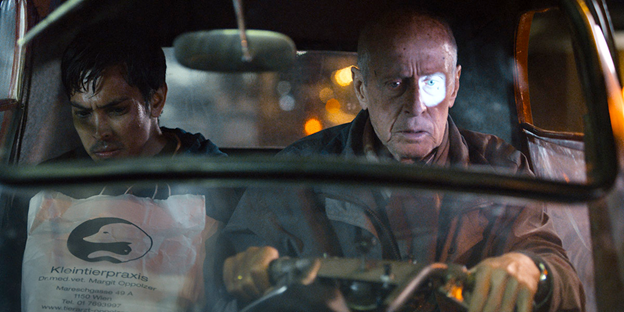
NOBADI
Director: Karl Markovics
Genre: Drama
In what is easily one of the dumbest, most reductive, and painfully didactic films to ever screen at AFI Fest, Karl Markovics’ 2019 outing, NOBADI, somehow establishes itself as a cliché-ridden white savior narrative and a gore-thriller in one package. And though that sounds compelling at first glance, it’s a film that in no way, shape, or form earns this last-minute gear shift, ultimately registering as a bad film that needlessly transitions into a dumb film. And sure, I can’t totally fault Markovics for trying something new here, but what he delivers with his threadbare characters and embarrassing narrative contrivances (the NATO “concentration camp” dialogue is an egregious highlight) ultimately results in a cringeworthy film that never quite seems sure of its own political allegiance. Like, sure, “history repeats itself” is a theme here, but that can’t seriously be your thesis statement? The net-zero contribution that NOBADI makes to Europe’s refugee crisis, and the baffling way in which it tries to thread the needle so as to draw parallels between Afghanistan and the Holocaust are so misguided that one can only wonder if Markovics let an algorithm raised on ill-informed Facebook statuses write his screenplay for him. [Sergio Zaciu]
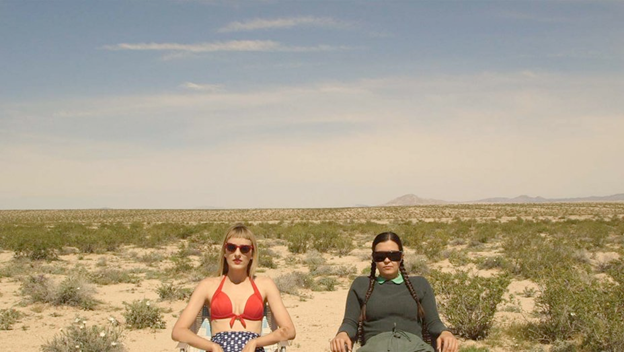
THE PLANTERS
Directors: Hannah Leder, Alexandra Kotcheff
Genre: Comedy
Though it sounds harsher than I mean it to, THE PLANTERS is the kind of indie release that’s propped up almost entirely by the charming factoids dropped during its Q&A—as well as the indelible charisma of its directors. THE PLANTERS is not a good comedy. In fact, I’d even go so far as to say that it’s a bad film. But there is something to be said about director-actor duo Alexandra Kotcheff and Hannah Leder, two brilliantly passionate women with an unending commitment to making an entire feature film without a single crew member on hand. So yes, the comedy doesn’t land, the story is paltry, and the aesthetics are a bland pastiche of more accomplished filmmakers. And though I’m not one to prop up a film’s score based on a simple piece of behind-the-scenes trivia, I can’t not congratulate these women for pulling off an entire feature film by hitting that record button and just going for the take. [Sergio Zaciu]
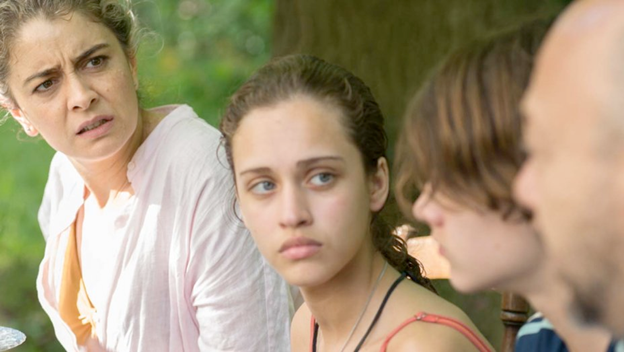
THE SLEEPWALKERS
Director: Paula Hernandez
Genre: Drama
Family vacation films are ripe for drama, but not guaranteed home runs. Take Argentinian director Paula Hernández’s THE SLEEPWALKERS as a case in point. An initially compelling, but ultimately redundant domestic drama that only really gets good in its final 20 minutes. Unfortunately, THE SLEEPWALKERS only manages to find any sense of narrative momentum through a tasteless third-act rape sequence, the type of old-hat screenwriting mentality that you’d think we’re well past in This Year Of Our Lord, 2019. And that isn’t to say that Hernández’s harrowing finale isn’t effective, it’s just misguided to have this action serve as a means to an end as opposed to an inciting incident. Had THE SLEEPWALKERS dealt with the psychological turmoil that intrafamilial abuse takes on the family unit, then Hernández would surely have had a far more emotionally charged film on her hands, but much like many other films at this year’s AFI Fest, THE SLEEPWALKERS is yet another foreign language entry that, in spite of its strong dramaturgical performances, is littered with far too much filler. [Sergio Zaciu]
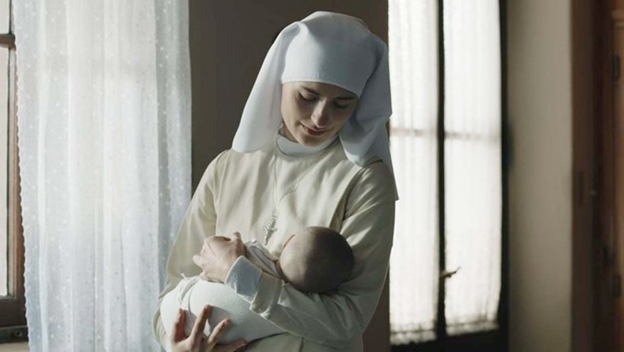
MATERNAL
Director: Maura Delpero
Genre: Drama
In MATERNAL, Maura Delpero’s discourse on motherhood, a young Italian nun finds herself emotionally attached to the child daughter of a reckless—and careless—mother in an Argentinian women’s shelter. Though beautifully photographed and performed with slight emotion, MATERNAL suffers from many of the setbacks that another AFI Fest entry, ADAM, does: a distinct lack of dramatic urgency. It’s fine to make low-stakes comedies, but it’s a different story with low-stakes dramas. MATERNAL, in spite of its best intentions, never really takes flight, and much of its setbacks have to do with a deeply flawed first act, one in which the film falsely establishes a young pregnant woman as the film’s key protagonist, only to later turn its attention towards Lidiya Liberman mother Paola. Once the film finds its narrative footing, the emotions run quite high, and the film’s final minutes are certainly a worthwhile emotional rollercoaster; it’s just a shame that like so many other foreign entries in this year’s AFI lineup, MATERNAL feels just a little too slight, never ratcheting up the tension beyond its immediate established conflict. [Sergio Zaciu]
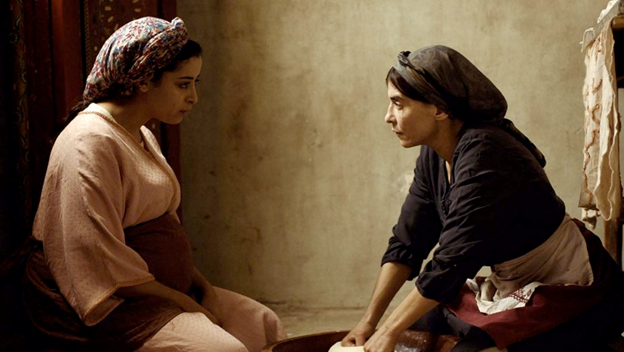
ADAM
Director: Maryam Touzani
Genre: Drama
AFI Fest has a tendency to serve up a handful of boilerplate foreign language dramas, often hitting the same approximate cultural marks every time. Maryam Touzani’s ADAM is a textbook example (a North African feminist tale of sisterhood), a beautifully acted, tastefully filmed, but often overdramatized tapestry of two women healing through the goodness they see in the other. Touzani’s film follows a young, houseless pregnant woman, who finds shelter with a widow and her child daughter. As Touzani slowly peels back the layers on these women’s backstories, they begin to fulfill their respective purposes of helping the other overcome the internal struggles that they have been unwilling to confront. It’s a beautiful tale of sisterhood, and one that is captured with grace and confidence, but it all lacks a certain dramatic heft that keeps it from being particularly memorable. As strong as these actresses are, this narrative never escalates in intensity, relying almost entirely on the same stakes it sets up in the opening minute of the film. None of that is to say that ADAM is a weak entry in this year’s festival slate, it just never quite hits its stride as something unforgettable. [Sergio Zaciu]
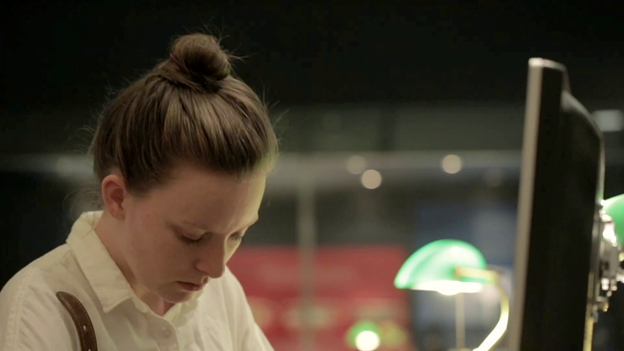
MS SLAVIC 7
Director: Sofia Bohdanowicz
Genre: Drama
A short but delightful personal project, MS SLAVIC 7 is Canadian director Sofia Bohdanowicz’s autobiographical retelling of her efforts to reclaim her grandmother’s letters from Harvard University’s Houghton Library. After their fleeing from Poland during World War II, the written correspondence between poets Zofia Bohdanowiczowa and Józef Wittlin consisted of astoundingly elegant prose that is maintained through their English translation. Canadian actress Deragh Campbell, in her second film at AFI Fest, co-directs and plays Sofia’s role in attempting to return the letters to their rightful place when Harvard saw fit to archive them unbeknownst to her under the call number “MS Slavic 7.” Using her grandmother’s written words as a framework, the film consists of more than just spoken readings. There are deep-diving conversations on the importance tangible letters have, slow cinema moments where Campbell handwrites the letters word for word or lights transparencies on an overhead, and even subtitles of the poems with no speech attached. It’s a peculiar artistic decision on the surface but allows Sofia’s grandmother to be somewhat of another co-author to the film and in turn probably the most honest way to depict the letters within this visual medium. It’s hard for audiences not to feel the passion of both Sofia and her grandmother. [Alexander Larios]
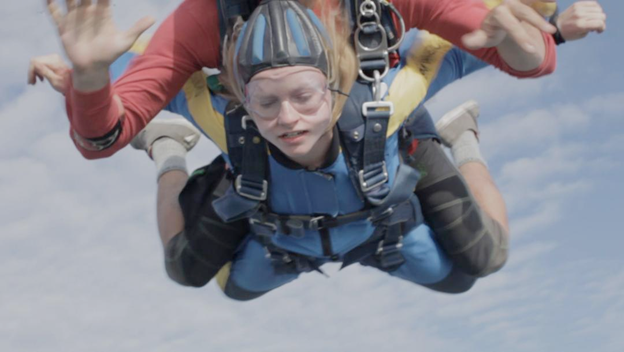
ANNE AT 13,000 FT
Director: Kazik Radwanski
Genre: Drama
With ANNE AT 13,000 FT, Canadian director Kazik Radwanski paints a blissfully empathic portrait of mental illness in the ilk of a modern Cassavetes film. Featuring a breakthrough performance from indie-film actress, Deragh Campbell, Radwanski’s film astutely observes a woman in the ebb and flow of elation and despair. Shot entirely in shaky close ups, Radwanski certainly demands quite a lot of his audience, but by the time the film reaches its breathtaking finale, Radwanski finally lets his viewers breathe. Though compelling on paper, this unfortunately doesn’t translate quite as efficiently onto the screen, if only because the film’s monotone visual style is often at odds with Campbell’s performance. For a film that so lovingly segues from moments of bliss to ones of anguish, it’s a shame that it’s always shot exactly the same way. This is especially true for all of the scenes involving indie punk-rock wunderkind, Matt Johnson, whose supporting role throws in a much needed sense of humor into the entire affair. Had these scenes been shot with a different visual language, Radwanski could have really sold me on the entire approach, but as it stands, some of these creative decisions read more like limitations than anything else. [Sergio Zaciu]
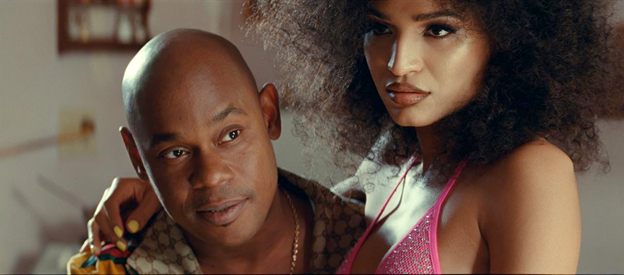
QUEEN & SLIM
Director: Lena Waithe
Genre: Drama, Thriller
QUEEN & SLIM’s promising premise of “series of SAN ANDREAS side missions while on a constant five-star wanted” never takes flight as the dreamy, prolonged chase scene it could be. Melina Matsoukas’ feature debut is subjugating Southern landscapes with Black beauty, informed by the swaths of connections found in Black solidarity across America and scored to a dope playlist, but lacks an ethereality that reinforces the strengths of its “When I Get Home” needle drops. With the power to frame boldly Black stories on a grand, globe-trotting scale, I cannot fathom for the life of me why you’d end this the way screenwriter Lena Waithe does. It’s Black BONNIE & CLYDE, that’s for certain, and it’s a deeply disappointing decision, harping on a tired notion of absolute pain that positions itself as deification, but completely botches the opportunity for powerful myth-making. I’m certainly not mad at this film, but when Arthur Penn’s is still the most formally and contextually thrilling rendition of the tale 50 years down the line, especially in company of adaptations like QUEEN & SLIM that specifically urge radicalness, it paints a dour portrait of how progressive our cinema is allowed to be in this “revolutionary era of representation.” [Kevin Cookman]
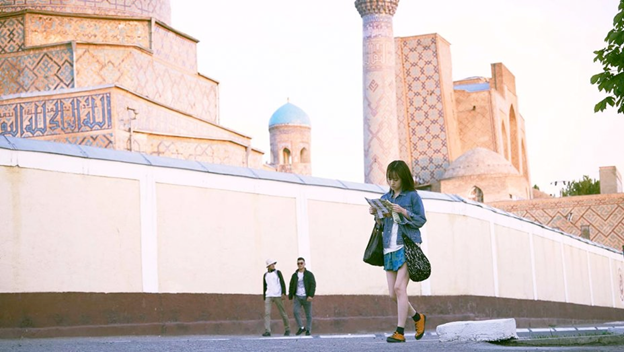
TO THE ENDS OF THE EARTH
Director: Kiyoshi Kurosawa
Genre: Drama
TO THE ENDS OF THE EARTH has Japanese director Kiyoshi Kurosawa, mostly known for genre thrillers, utilizing his beloved muse Atsuko Maeda once again. This time Maeda plays fish-out-of-water TV personality Yoko, who must film an episode of her new travel show in Uzbekistan. She seems bubbly and all smiles for the camera, but once it’s off, anxiety consumes her in this unknown land. Even when overstrung, Yoko’s commitment to the production is admirable. She braves through rickety carnival rides, undercooked plov, and undercooked plot as well. With how helpless she is throughout the film, wandering around both the bustling city and the untamed hills outside of Tashkent, it’s a wonder why her crew so often leaves her fending for herself. Perhaps it’s that her onscreen persona exudes so much confidence that her safety wasn’t of their concern. Seeing through the facade, however, are the Uzbek people whose every offer to help her backfires as Yoko turtles up in fear. TO THE ENDS OF THE EARTH accurately depicts the feelings that well up when lost in a foreign country, but relies on that aspect so much that it forgoes making any important point on these cultural differences or on tourism itself. [Alexander Larios]
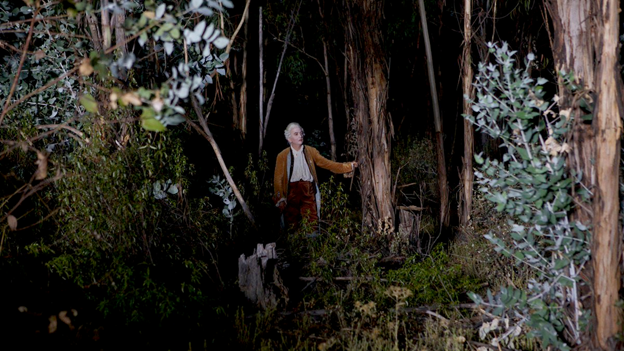
LIBERTÉ
Director: Albert Serra
Genre: Drama
There really is no way to describe Catalan director Albert Serra’s LIBERTÉ without it mistakenly coming off as an Aristocrats joke. In 1774, former members of France’s high society find themselves between Potsdam and Berlin after being driven out by King Louis XVI for being sexually deviant libertines. It is in the forest they find the best way to fulfill their unrestrained desires, pushing the extremes of both pain and pleasure. Serra, once again working with cinematographer Artur Tort, captures writhing flesh against the mysterious dark forest with nearly each shot being longer than the last, pushing every indecent act far past the point of disgust, bounds over the threshold of pornographic, and into something unique all its own. Perspectives shift from voyeur to voyeur as eventually the audience is seemingly invited to this gathering of slow cinema lust. Though the limp narrative serves only as a set up for each explosive encounter, seeing things ratchet up as the night goes on and having it all pretty much unfold in real time makes the experience of watching LIBERTÉ absolutely unforgettable. This one is definitely not for the faint of heart and has had numerous walkouts in nearly every single screening, but those losers missed out on probably the greatest ass-eating scene in history. [Alexander Larios]
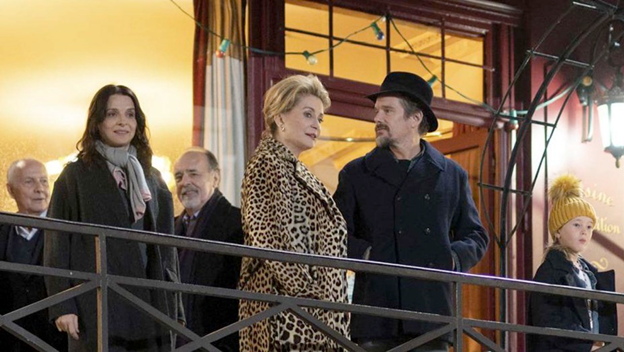
THE TRUTH
Director: Hirokazu Kore-eda
Genre: Drama
As more and more filmmakers come to terms with the fact that cinema as we know it is on its deathbed, there have been an influx of films that are either about the lost art of the filmmaking process itself or the concept of aging and death. THE TRUTH does both. At the very least, cinema’s funeral gathers the world together, as this is famed Palme d’Or-winning director Hirokazu Kore-eda’s first non-Japanese language feature and stars legendary French actress Catherine Deneuve. Aging film star Deneuve plays aging film star Fabienne, whose screenwriter daughter Lumir and American amateur actor son-in-law Hank, played by household names Juliette Binoche and Ethan Hawke, come to visit in celebration of the release of Fabienne’s new tell-all book entitled “La Vérité” (English: The Truth). Once reading the book, however, Lumir finds that its embellishments portray Fabienne as the most loving of mothers rather than the ugly truth of her fame-fueled selfish neglect. As always, Kore-eda is an expert of the push and pull of family drama and even uses the language barrier to his advantage with Hawke’s Hank drunkenly smiling as Deneuve’s Fabienne insults him in French to his face. While it would be an easy mistake to think this was directed by a French auteur, Kore-eda’s signatures still shine through, including his love of cuisine. Is it Kore-eda’s best? No, that still belongs to STILL LIFE. Is it better than SHOPLIFTERS? In some ways, yes. Now all he has to do to direct an American production is get Best Picture. [Alexander Larios]
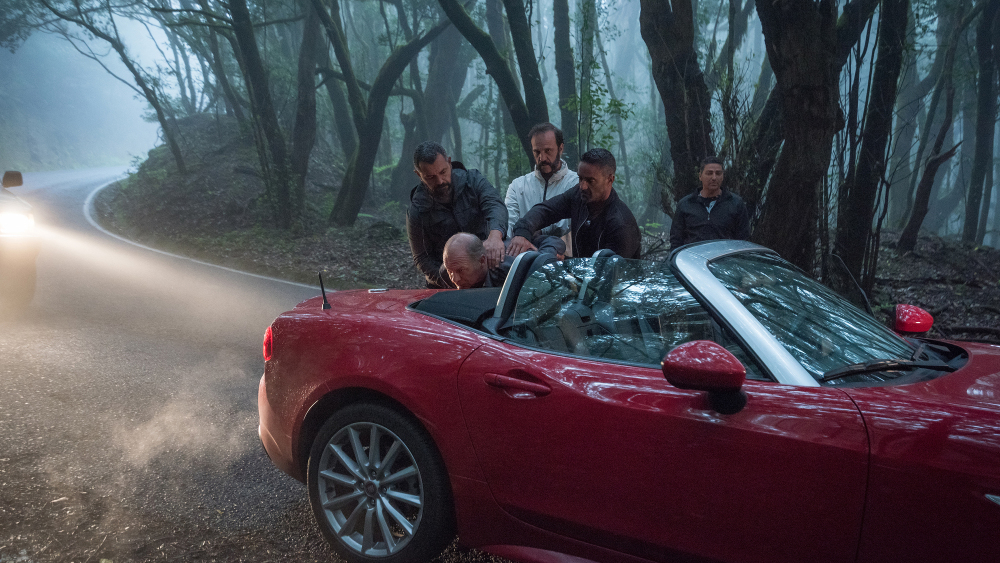
THE WHISTLERS
Director: Corneliu Porumboiu
Genre: Thriller
For those not familiar with the history of the Romanian New Wave, it likely won’t seem particularly meaningful that Corneliu Porumboiu decided to go full genre-film with his latest entry, THE WHISTLERS, a sardonically operatic gangster comedy more akin to PULP FICTION than any of Romania’s notable cinematic exports. Starring Vlad Ivanov as a crooked cop learning an obscure whistling-language in the Canaries, THE WHISTLERS adds two simple words to Romanian cinema’s lexicon: “cool” and “sexy.” It’s the first New Wave film with a SWAT shoot-out. The first with a feverish sex scene. And the first with some really badass gangsters. The clear departure from Porumboiu’s more removed style—one that has served as somewhat of a stylistic template for Romanian auteurs in general—will come as a shock to some. This isn’t the slow-cinema Romania has conditioned you into since 4 MONTHS, 3 WEEKS, 2 DAYS won the Palme D’or in 2007. Much like 2015’s AFERIM!, THE WHISTLERS is a stylistic change of pace, but the wry humor is still intact, a delightful, stylish entry to a national cinema that’s surely due for a spice-up. [Sergio Zaciu]
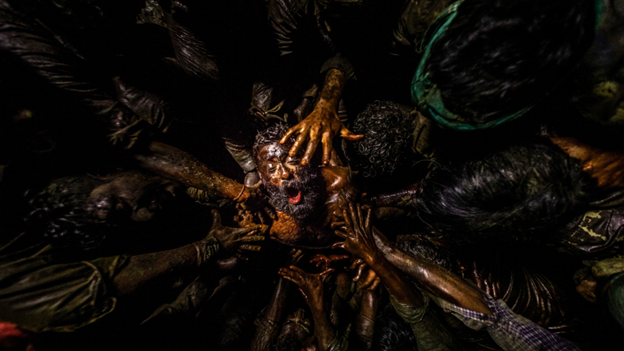
JALLIKATTU
Director: Lijo Jose Pellissery
Genre: Drama, Thriller
In what can only be described as the world’s largest torero fight, Lijo Jose Pellissery’s completely insane and goofily on-the-nose buffalo bonanza, JALLIKATU, takes us on a seemingly unending animal hunt. Starring hundreds of on-screen extras and maniacally ambitious gimbal photography (huge letdown that they opted for a Ronin/Movi and didn’t shoot this on an actual Steadycam), Pellissery gives us a madhouse caper that serves as a basic understanding for all the ridiculous stuff you can get away with once you’re not dealing with the legal red tape of Hollywood. Pellissery clearly mobilized an entire village to make this completely bat-shit crazy, often overbearing, glorified chase sequence, but holy hell if it isn’t a feast for the eyes. Probably the first time since the days of SPARTACUS where you can actually see hundreds of human beings moving in front of the camera without any digital manipulation in play. I guess it makes sense: leave it to the nation that gave us Bollywood to deliver a film as choreographically ambitious as JALLIKATTU. [Sergio Zaciu]
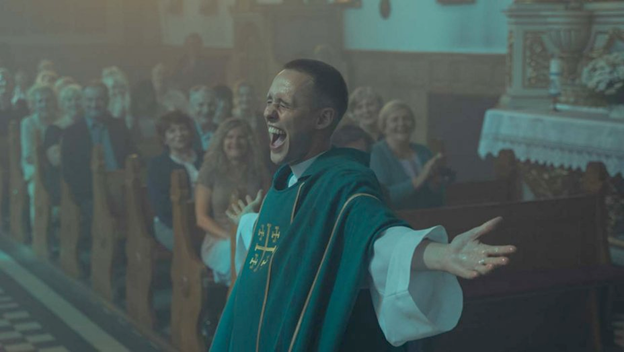
CORPUS CHRISTI
Director: Jan Komasa
Genre: Drama
In an absolutely jaw-dropping, star-making performance, CORPUS CHRISTI’s Bartosz Bielenia plays a young man released from juvenile detention who finds a sense of purpose and community after pretending to be a vacationing priest in a small Polish village. Inspired by a true story of a young man who… well, did exactly that, Jan Komasa’s outstandingly photographed tale of small-town tragedy (and Poland’s submission for the Foreign Language Academy Award) perfectly fuses the comedic stylings of slavic meme humor with the divine iconography of spiritual enlightenment. It’s a beautiful film, through and through; one that perfectly understands when to ease its tension with moments of levity, dedicating most of its runtime to the challenging emotions of its principal character—a man, who, in spite of his violent past, is doing everything to move past it. A gorgeous depiction of a man who isn’t a great criminal, nor a model Catholic, it’s a film unlike any other; not only a festival highlight, but one of 2019’s very best. [Sergio Zaciu]
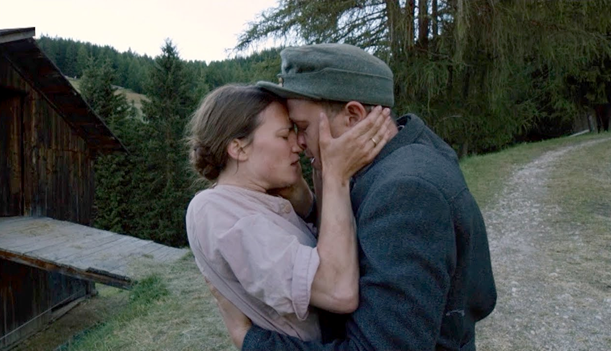
A HIDDEN LIFE
Director: Terrence Malick
Genre: Drama
What can be said about Terrence FUCKING Malick in the latter half of his career? TREE OF LIFE B-sides at the Science Center, a pointless if not talent-filled glimpse on grunge-turned-cringe music scenes, even a foray into VR? Like damn, Terry. Many see his work as messy yet altogether boring, lacking cohesion, pedestrian drowning in pretense, and one can’t fault another for saying the same about his newest film. But Malick’s strength is in his masterful interplay between the intimate and the epic which fits almost perfectly in the small village of Sankt Radegund. A HIDDEN LIFE is the true story of Austrian farmer Franz Jägerstätter, played here by August Diehl, who in World War II refused to swear the oath to Hitler and was thus taken by the Nazis from his wife Franziska, played by Valerie Pachner, and their three daughters. While it takes some time to get used to the selective use of spoken English as well as the seemingly perfect charms of provincial life in soon-to-be-fascist Radegund, the film takes many Malickian moments to smell the flowers in the most stunning of Upper Austrian vistas. When word gets out of Franz’s contempt for the führer, his charmed life is lost as the village and eventually the state turn against him while his wife, despite her own family’s wishes, fights tooth and nail for his return. Malick makes the noble descent from those beautiful landscapes to bleak prison walls a harrowing journey as well as his best film in ages. [Alexander Larios]
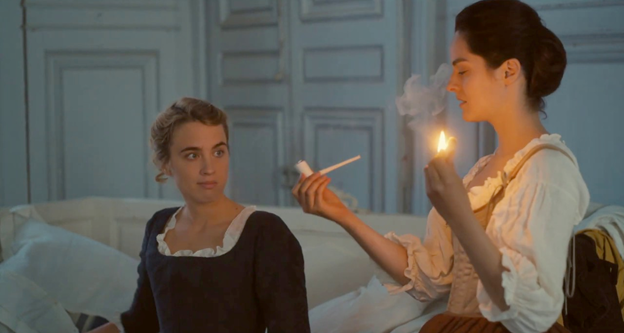
PORTRAIT OF A LADY ON FIRE
Director: Celine Sciamma
Genre: Drama, Romance
Believe the hype surrounding Céline Sciamma’s PORTRAIT OF A LADY ON FIRE. Shot elegantly in coastal France, Sciamma tells the story of 18th-century painting protégée Marianne, who’s tasked with fashioning a marriage portrait of the soon to be wed Héloïse. Given Héloïse’s emotional state after her sister’s recent suicide and the difficulties the previous painter assigned to the job had, Marianne must paint totally and completely without Héloïse’s knowledge. Donning the guise of a walking companion, Marianne retains the imprint of everything from Héloïse’s hands to the unique curvature of her ear. During the day, she accompanies her on the shores where her sister dashed herself upon the rocks and secretly sketches any moment she looks the other direction. Under the cover of night, Marianne toils away at the portrait, piecing together each fleeting moment she spent with her. But the most daunting undertaking for Marianne is to capture just a glimpse of her elusive smile. In attempting to loosen her furrowed brow and permanent scowl, Héloïse becomes much more than a mere subject in Marianne’s eyes. Of course there are some very French ruminations on the artist’s gaze, but the chemistry between the two is so engaging that it’s hard to not be won over after the film’s incredibly powerful last few minutes. [Alexander Larios]


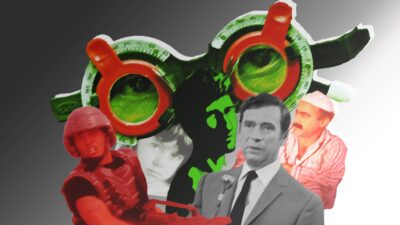
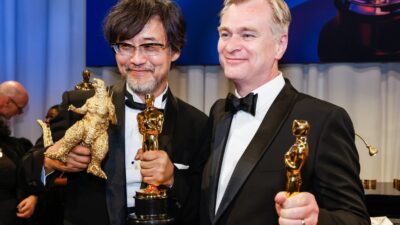




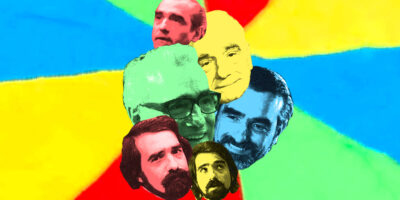
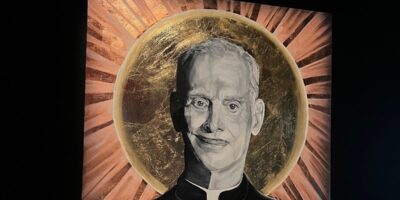
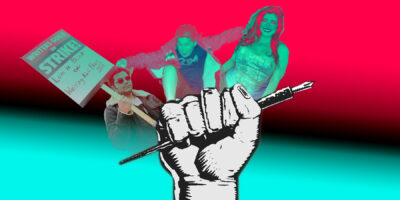




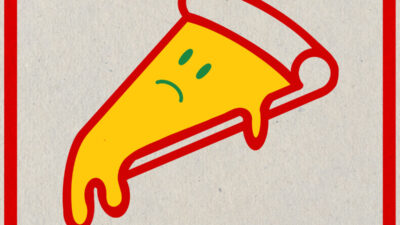
Comments